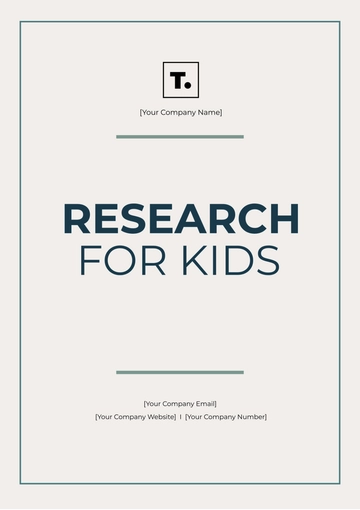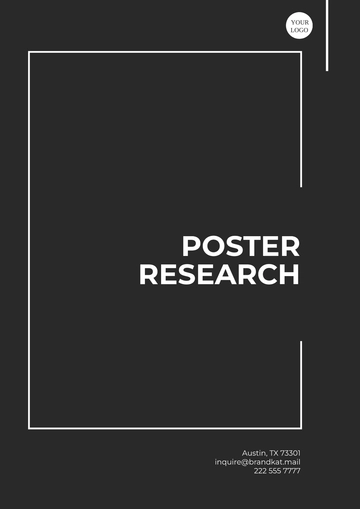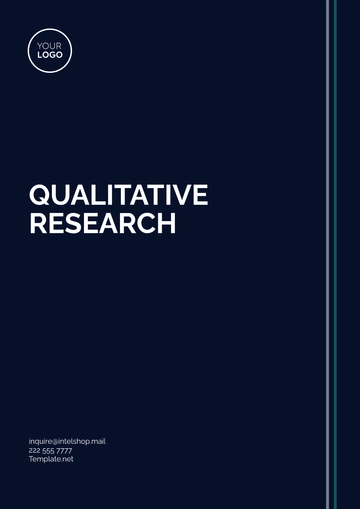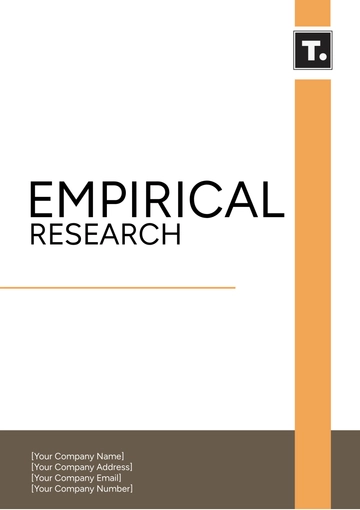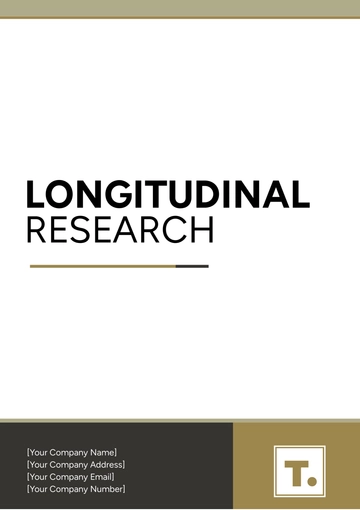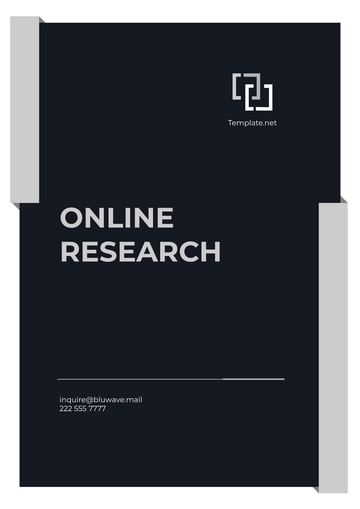Free Research Executive Summary
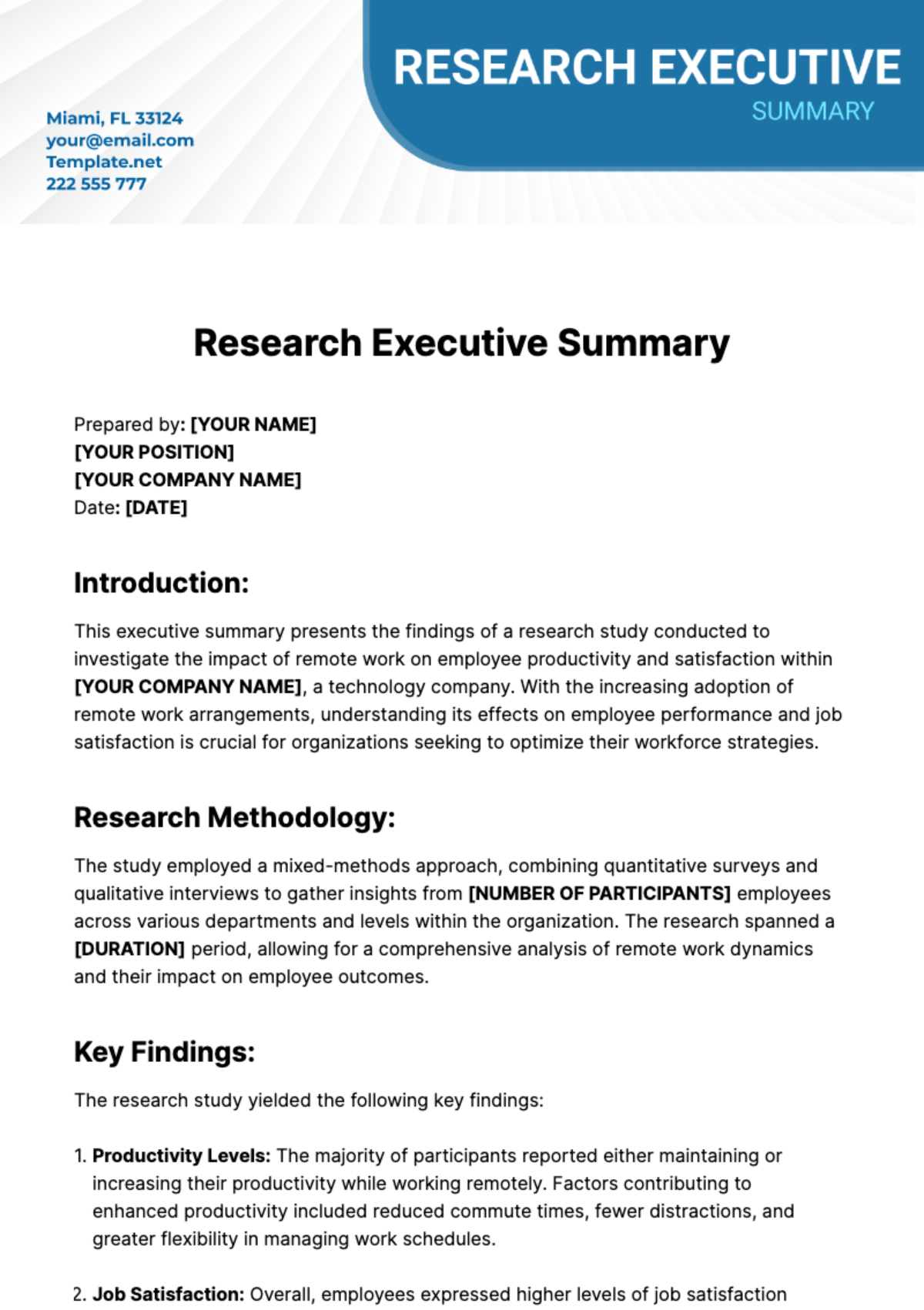
Prepared by: [YOUR NAME]
[YOUR POSITION]
[YOUR COMPANY NAME]
Date: [DATE]
Introduction:
This executive summary presents the findings of a research study conducted to investigate the impact of remote work on employee productivity and satisfaction within [YOUR COMPANY NAME], a technology company. With the increasing adoption of remote work arrangements, understanding its effects on employee performance and job satisfaction is crucial for organizations seeking to optimize their workforce strategies.
Research Methodology:
The study employed a mixed-methods approach, combining quantitative surveys and qualitative interviews to gather insights from [NUMBER OF PARTICIPANTS] employees across various departments and levels within the organization. The research spanned a [DURATION] period, allowing for a comprehensive analysis of remote work dynamics and their impact on employee outcomes.
Key Findings:
The research study yielded the following key findings:
Productivity Levels: The majority of participants reported either maintaining or increasing their productivity while working remotely. Factors contributing to enhanced productivity included reduced commute times, fewer distractions, and greater flexibility in managing work schedules.
Job Satisfaction: Overall, employees expressed higher levels of job satisfaction when working remotely compared to traditional office settings. The ability to achieve better work-life balance, autonomy in managing tasks, and reduced stress from commuting were cited as primary drivers of satisfaction.
Challenges: Despite the benefits, remote work also presented challenges for some employees, including feelings of isolation, difficulty in separating work from personal life, and technological barriers to collaboration.
Communication and Collaboration: Effective communication and collaboration emerged as critical factors in maintaining productivity and job satisfaction among remote workers. Utilization of digital communication tools and regular virtual team meetings were identified as essential practices for fostering connectivity and teamwork.
Implications for [YOUR COMPANY NAME]:
The findings of this research study have several implications for [YOUR COMPANY NAME]:
Workforce Policies: [YOUR COMPANY NAME] should consider implementing flexible remote work policies to accommodate employees' preferences and optimize performance outcomes.
Technology Infrastructure: Investing in robust technology infrastructure and digital tools is essential to support seamless remote collaboration and communication.
Employee Support: Providing training and resources to support remote work adaptation and addressing potential challenges can enhance employee well-being and job satisfaction.
Conclusion:
In conclusion, the research study highlights the positive impact of remote work on employee productivity and satisfaction within [YOUR COMPANY NAME]. By leveraging the insights gained from this study, [YOUR COMPANY NAME] can develop tailored strategies to optimize remote work arrangements and cultivate a positive work environment conducive to employee success.
- 100% Customizable, free editor
- Access 1 Million+ Templates, photo’s & graphics
- Download or share as a template
- Click and replace photos, graphics, text, backgrounds
- Resize, crop, AI write & more
- Access advanced editor
Introducing our Research Executive Summary Template, meticulously designed to distill complex research findings into a concise and impactful format. Accessible on Template.net, this editable and customizable template streamlines the summarization process. Utilize our Ai Editor Tool to tailor the summary to your research's specifics, ensuring clarity and relevance. Simplify your communication process and impress your audience with our meticulously crafted template. Elevate your research dissemination with Template.net.



